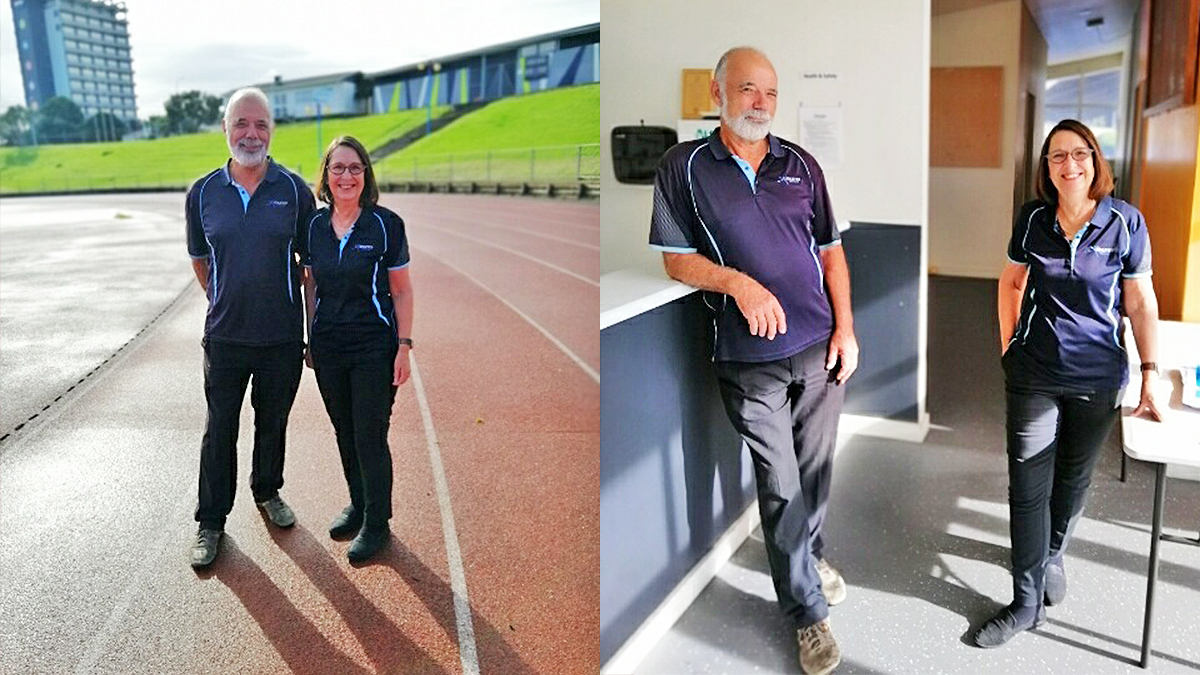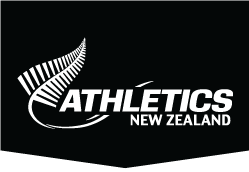News & Updates
The Craddocks share passion for the sport

Paul and Dianne Craddock have made a hugely positive impact on the sport of athletics with their selfless work as volunteers
Behind the scenes the husband-and wife combination of Paul and Dianne Craddock have made a hugely positive impact on the sport of athletics with their selfless work. To celebrate National Volunteers Week, we speak to the Auckland-based pair to find out more about their respective roles.
What are your current roles within athletics?
Dianne: I am Athletics Auckland Inc Convenor for the Cross Country and Road Committee and sit on the AAI Board in this capacity. I am involved in the admin area of senior track and field, which take me a range of different activities across both seasons. I am responsible for organising the Grand Prix events along with other out of stadia events that AAI gets involved with. I have helped organise five New Zealand Cross Country or Road Championships and also the cross country events for the 2017 World Masters Games. I was also involved in the track and field admin for those Games. I have been a long-standing team manager for Auckland teams to national championships and taken AAI athletes to the Australian Cross Country Championships. I have also officiated at New Zealand Cross Country and Road Championships and also at several New Zealand Secondary School Track and Field Championships. In more recent years, I’ve been involved in TIC at National Track and Field events.
Paul: I officiate during both summer and winter seasons for Centre and Club (Auckland City Athletics). I’m on both summer and winter committees for club. Assist at track and field club nights. Acting Convenor for AAI Senior Track and Field Committee and attend AAI Board meetings. I’m one of the three Auckland seminar presenters to train new officials. I’m also an AIMS B Grade measurer – involved in measuring half and full marathon courses in northern North Island. I’m one of the AAI personnel who officiate at primary, intermediate or secondary school track and field days and I organise the officials we need for some of the AAI track and field meets.
Can you explain your journey into athletics volunteering?
Dianne: Our journey into athletics volunteering is a little different than most people. Our son, Vaughan, discovered he had a talent for running at a young age and this was noticed by one of the girls at his primary school who was a member of the local cross country and road club (College Rifles). They had a yearly event, “bring a friend” and she decided to ask Vaughan. We then started to get involved with the club in many ways, especially as our two other children joined as well. Neither Paul or I had ever been runners of athletes in any way, but we have always believed that you should get involved with your children’s activities and contribute.
Paul: While Dianne became involved in the administration side, I preferred to help put out the cones around the course. Somehow, it was my “job” to set the courses. Setting different courses on the same park is still a challenge I enjoy. We were involved with just the winter season for many years – our involvement with track and field only began in the late 1990’s.
What was the initial buzz/thrill you got out of the role?
Dianne: I enjoyed being involved in every area of the sport through a combination of the people I have met along the way and the knowledge acquired. It becomes so much more than just supporting your own children. Being able to work with like-minded people and contribute to being able to help these children, young adults and adults achieve their dreams or just develop them as an athlete or a person is really great.
How has your volunteering role evolved over the years?
Paul: I think there are a couple of aspects – gaining knowledge of the sport from being involved and seeing what is needed, listening to the “experienced” people and learning from them, and having the subsequent confidence to take on a larger/different role. I was very fortunate that for both course measuring and cross country course setting, I had a great mentor in Jim Watkins from the Manurewa Club who was very happy to share his knowledge.
Can you believe from when you started how far your athletics journey has taken you?
Dianne: No, I can’t really believe it at times. I am still surprised sometimes at what I have got involved in and where it has taken me. I feel through the varied roles I have experienced this has given me the chance to develop many life skills as well as practical ones and this has developed me as a person.
Paul: Yes and no. It was a step-by-step process. I am not sure that I really thought “where will this end up?” Our children were involved, and we did what we could to support them. As time went on needs arose for people to do things within the club and the centre. That is how we became involved in track and field – there was a need for officials to help run the meets. So began another part of the journey.
What are some of the biggest challenges you face in your respective roles?
Dianne: Taking on the organisation of national competitions and events like World Masters Games brings many challenges but learning to work through everything step by step in order to try and cover all the little things is how I view how can achieve a successful event. It is often not the obvious things that go wrong, but the little things that affect individuals that people remember. However, I quite enjoy the problem solving and trying to make things as smooth as possible for all involved; officials, competitors, coaches or spectators.
Paul: There are times you wonder if you can achieve the task. But that is good. If you only do what you can easily achieve, then you never grow, or achieve your full potential. Probably the biggest challenge is getting enough volunteers/officials.
What have been some of your highlights of your respective roles over the years?
Dianne: I enjoy taking the teams away both to our national champs and Australian Cross Country champs. I quite enjoy the planning and organisation involved but mostly because I feel that it is the responsibility of a manager to make the whole experience as smooth as possible for the athletes. I always tell my teams that it is my job to solve the problems, so that they can just concentrate on performing the best they can in their events.
Paul: World Masters Games was a highlight. Peter Booker and I were heavily involved in putting the track and field programme which took many hours of planning to get to the final version. Dianne and I were involved in the cross country course/event at the Auckland Domain and I was one of the officials at the track and field. Late in the planning, I became involved in getting the officials too – that was a challenge on its own. Will we ever get enough? The track and field was held at both Trusts Stadium and AUT Millennium which added an extra layer of planning. But it was a great experience and we all learnt a tremendous amount.
What qualities do you think you need to excel in your respective positions?
Paul: Not sure the following only applies to excelling – it also applies to doing any role. Willingness to be involved, to donate some of your time, to learn new skills/knowledge, to work with all sorts of people (even if they are difficult), to want to help develop others, to enjoy what you are doing, to strive to do the best you can, to do any job you are asked.
You are both heavily involved in athletics admin/volunteering. What are the advantages of sharing the same passion?
Dianne: The major fact of being able to do it together. There isn’t one of us left at home feeling resentful or left out. It does sometimes mean I step outside my comfort zone, for example when I drive our car behind him for cover at silly hours of the night when he is measuring a course. Driving on the wrong side of the road and through red lights is not what I expected to be doing.
And the flipside of this, are there any disadvantages?
Dianne: Getting things done around the house is certainly one of them. Our children would probably say that while they appreciate what we do, there are times when it makes it difficult to fit in with other family requirements such as grandchildren’s activities and birthdays etc.
Why would you encourage other people to make the same steps you have within the sport?
Paul: Maybe not the same steps, but any steps within athletics. It is one way of assisting others to achieve. And this isn’t restricted to the elite athletes. To see anyone, improve their performance is so satisfying. You can make some great friends, learn new skills and develop as a person.
